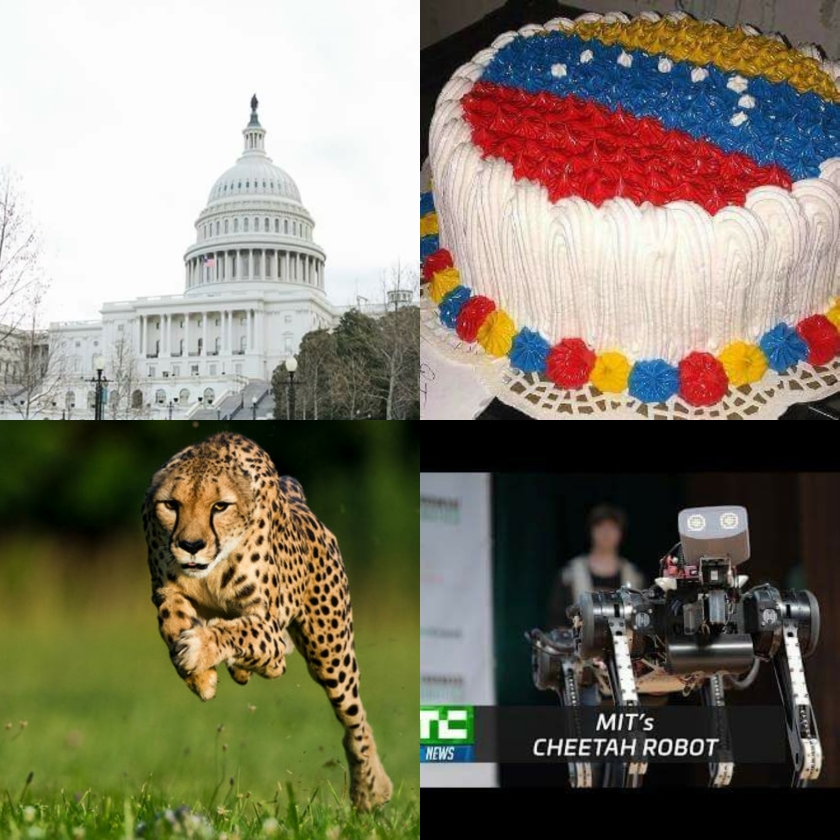How was your weekend? Did you spend it anticipating what would be the results of the GOP’s second attempt at overhauling the Affordable Care act, aka “Obamacare”? Were you worried about another political explosion in Venezuela, in the form of a Constitutional crisis. What about Cheetahs and robots? Or just Cheetah robots?
This is about all of the above. While all of them are not directly linked to one another that is the state of the U.S. health care system, what is happening overseas, and the rise of machines, these events and items are all about protests, what affects us all, and the future forward.
It took seven years, and nearly seven months for the ruling Republican party – who controls both the U.S. Senate and House – to repeal and replace “Obamacare.” But the bill failed to pass…again. Why did this happen? Leading the charge since 2010, the year former President Barack Obama’s health care law was enacted, is Senate Republican leader Mitch McConnell. But McConnell and the rest of Republican party have not been able to agree on any alternatives to the complete overhaul – behind closed doors with no input from Democrats, which would have arguably contributed to this failed attempt.
But some GOP Senators were very vocal in not throwing their support behind the Republican backed bill: Senators Shelley Moore Capito of West Virginia, Susan Collins of Maine, and Lisa Murkowski of Alaska, along with Senators Mike Lee of Utah, and Jerry Moran of Kansas. These strong opinions by these staunch conservative politicians sort of blindsided the Whitehouse and its administration, and further led to the bill not being passed. Perhaps it was a little premature to celebrate on the Whitehouse lawn several weeks ago.
What happens now? President Donald Trump is hoping that “Obamacare fails and then the Democrats will come to us [GOP].” McConnell wanted a straight repeal of Obamacare effective within two years, but conservative politicians like Lee and Moran put an end to that idea. It looks like it’s back to the drawing board. Meanwhile, Democrats saw the failure as a win, “the second failure of Trumpcare is proof positive that the core of this bill is unworkable,” Democrat Senate Minority Leader Chuck Schumer stated.
Over 20 million Americans have gained health insurance coverage under Obamacare.
From one big country’s dilema to another, Venezuela and its constitution is in trouble. President Nicolas Maduro of Venezuela wants change once again in his country’s constitution. It, their constitution, has been changed 26 times within 206 years of its history.
A referendum for the country was carried out in the form of protests by Venezuelans. Under this new referendum Maduro wants an opportunity for his people to live in peace, and in putting an end to violence. Maduro argues that this will be for the small neighborhoods that were created by former Venezuelan leader Hugo Chavez. They also want to expand the justice system to fight corruption, etc.
The opposition is not buying what Maduro is selling. They call the referendum “fraudulent.” They have sent messages to Maduro to end this proposal, as well as have a plan for a 24 hour strike on July 20 that would be in the streets. Venezuelans however support the current constitution which was changed since 1999.
It sometimes takes laws and swift action to influence the minds and actions of people in these situations. Speed is needed, so how about a Cheetah. MIT’s newest Cheetah robot is one of the most exciting ventures in robotics to date. This four-legged robot can jump, and run up to nearly 30 miles per hour. This kind of metallic cheetah runs on a complicated algorithm, and responds to voice commands via Alexa, Amazon’s digital voice recognition software.
The Cheetah robot debuted at the TC Sessions: Robotics in Cambridge, Massachusetts. The creators of this super fast robot is hoping to have it do more than be the fastest robot on the planet. Sang-bae Kim and his team at MIT’s Biomimetrics Lab want a more practical and life giving approach. Kim says that their vision became transformed when they wanted to use it in a real situation such as, the clean up at Fukushima. The Fukushima Daiichi Nuclear Plant disaster was an accident that took place in Fukushima, Japan on March 11, 2011.
Kim adds that he has been “fascinated by developing legged machines, which can go where real machines cannot go.” Humanity has “conquered air, water,” earth, or the ground in this case. But the ground needs to be challenged in a different way that is by modifying it for “our four wheels.”
Sources: Politico, Reuters, Bloomberg, TechCrunch, CBS This Morning


